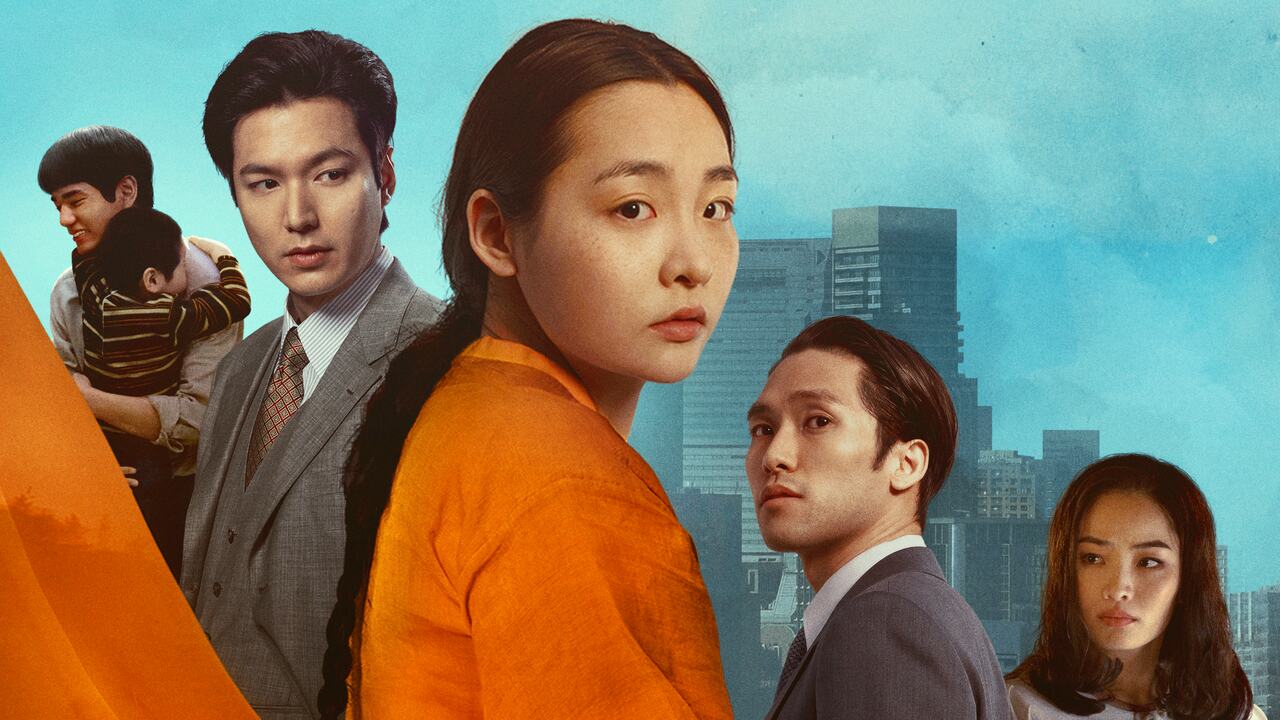
As the curtain rises on Season 2 of Pachinko, the sprawling multigenerational saga based on Min Jin Lee's novel, the Baek family’s epic journey through time and turmoil continues to unfold with both the delicate intimacy and the sweeping grandeur that defined its predecessor. Yet, this time around, the balance between these elements seems slightly skewed, and while the season remains a visual and emotional feast, it occasionally stumbles under the weight of its own ambitions.
The narrative stretches from the late 1930s to the early 1960s in one timeline, and the late 1980s in another. It paints a picture of a family caught in the web of history, their lives intersecting with seismic global events that are both a backdrop and a driving force in their personal struggles. Season 2 deepens our understanding of characters like Sunja (played with understated grace by Youn Yuh-jung), whose journey from a young girl to an elder matriarch encapsulates the core of this series: the tension between memory and identity, heritage, and adaptation.
In many ways, Season 2 excels in what Pachinko does best—creating a deeply personal lens through which to view the grand sweep of history. The intimate moments between characters, whether in quiet conversations or emotionally charged confrontations, resonate with the kind of authenticity that made the first season so compelling. The show’s ability to capture the pain and beauty of the immigrant experience, the generational struggles, and the silent, simmering power of love and duty remains intact, and for that, Pachinko deserves praise.
However, the second season also takes some risks that don’t entirely pay off. The creators seem to be consciously reaching for the kind of high-stakes drama that the first season’s standout episodes, like the Great Kanto Earthquake, so masterfully delivered. But in doing so, they occasionally tip into melodrama, making some of the historical events feel more like narrative devices than the natural forces shaping the characters' lives. The show is at its best when it allows these events to inform the characters subtly, rather than overwhelm them.
The dual timelines, a structural hallmark of the series, continue to provide a rich, textured narrative, but they also highlight some of the season's shortcomings. The 1989 storyline, centered on Solomon (Jin Ha), who now grapples with the consequences of his actions from Season 1, is compelling in its exploration of identity and legacy, yet it sometimes feels burdened by its need to connect with the larger historical narrative. The impending financial crisis, though historically resonant, is handled with a sense of inevitability that undercuts the emotional stakes, making Solomon's journey feel more like a plot requirement than a fully realized character arc.
Still, the beauty of Pachinko lies in its quieter moments. The show excels when it focuses on the simple, profound exchanges between its characters—the tension in a shared meal, the unspoken pain of a lingering glance, and the unyielding resolve of a family determined to survive against all odds. These are the moments that capture the essence of Pachinko, where history is not just a backdrop, but a living, breathing force that shapes the characters in ways both seen and unseen.
Visually, the season is as stunning as ever. The cinematography continues to be a standout, capturing the lush, vibrant landscapes of Korea and Japan with a painterly eye. The attention to detail in the production design is impeccable, creating a world that feels both lived-in and timeless. The score, too, remains a haunting presence, weaving its way through the narrative with a subtlety that enhances the emotional depth of the story.
Yet, despite these strengths, there is a sense that the season is trying to recapture the magic of the first, rather than pushing the story forward in a meaningful way. The decision to lean more heavily into melodrama, while understandable given the source material, sometimes detracts from the show’s ability to deliver the kind of nuanced, character-driven storytelling that made Season 1 such a critical success. The final moments, set to a haunting cover of Coldplay's "Viva La Vida," feel like a deliberate attempt to evoke a certain mood, but they also underscore the season’s tendency to reach for emotional impact rather than earning it naturally through the narrative.
In conclusion, Season 2 of Pachinko is a worthy, if slightly flawed, continuation of the Baek family’s story. It remains a deeply affecting exploration of identity, memory, and the immigrant experience, anchored by strong performances and a keen sense of historical detail. But in its pursuit of high drama, it sometimes loses sight of the quieter, more intimate moments that gave the first season its heart. For all its imperfections, though, Pachinko remains a powerful, visually stunning drama that continues to resonate long after the credits roll.
Final Score- [7.5/10]
Reviewed by - Anjali Sharma
Follow @AnjaliS54769166 on Twitter
Publisher at Midgard Times
Note: All 8 episodes are screened for this review.
Premiere Date: August 23, 2024, on Apple TV+ with the first episode followed by a new episode every Friday.
Hi Everyone, after a due consideration, we have decided that we will be open for donations to help us in managing our website. We will be greatful for any kind of amount we receive. Thanks!
— Midgard Times 🎬 (@Moviesr_net) January 4, 2026
PayPal- [email protected] pic.twitter.com/DlNNz5Npm5
Get all latest content delivered to your email a few times a month.
Bringing Pop Culture News from Every Realm, Get All the Latest Movie, TV News, Reviews & Trailers
Got Any questions? Drop an email to [email protected]